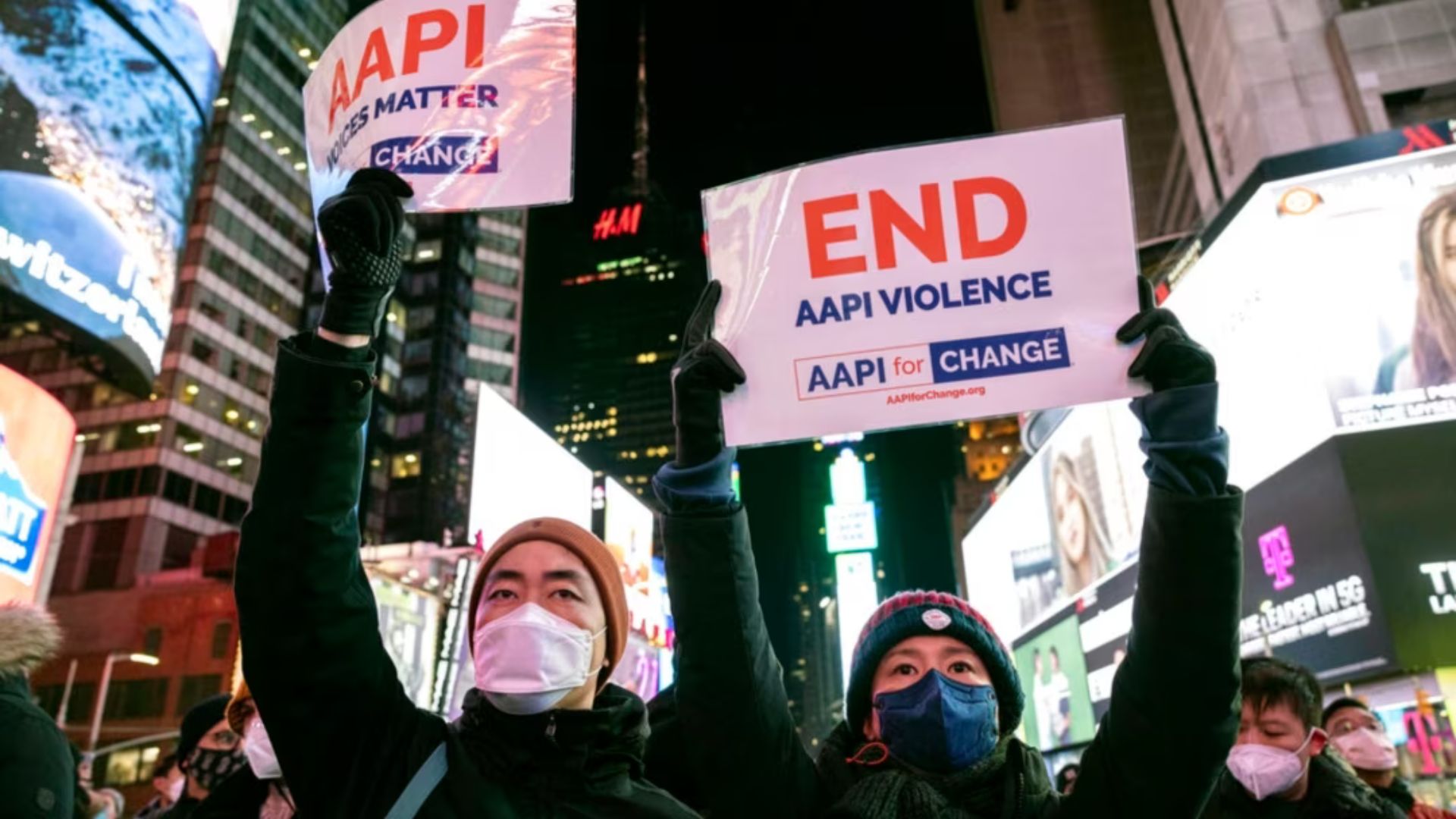Most Asian Americans experience discrimination in many parts of their day-to-day lives. In the survey, we asked Asian American adults if they have ever experienced discrimination or been treated unfairly because of their race or ethnicity.
In addition to this broad question, we also asked whether they have experienced specific discrimination incidents in their everyday life. These include incidents in interpersonal encounters with strangers; at security checkpoints; with the police; in the workplace; at restaurants or stores; and in their neighborhoods.
A recent report from the Pew Research Center reveals that encountering prejudice is a commonplace experience for the majority of Asian Americans living in the US.
About 58 percent of Asian individuals have experienced racial discrimination or unfair treatment because of their race or ethnicity, according to the report, which was based on a poll of more than 7,000 participants. Of those, 53 percent said they encounter racial discrimination sometimes and 5 percent say it happens very often.

The prevalence of reported racial discrimination among Asian adults varies across demographic groups, particularly concerning ethnic origin. In this context, 67 percent of Korean adults recall experiencing racial discrimination, a higher percentage compared to Vietnamese adults at 57 percent, Filipino adults at 55 percent, and Indian adults at 50 percent. According to the report, U.S.-born Asian adults are more inclined to acknowledge experiencing racial discrimination compared to their immigrant counterparts, with 65 percent of U.S.-born individuals reporting such experiences, as opposed to 55 percent among immigrants.
The report also found that 57 percent of U.S.-born Asian adults have been called offensive names by strangers, almost twice the rate of Asian immigrants at 30 percent. Among Indian adults, 26 percent report that strangers have used offensive names to refer to them, a percentage lower than that reported by individuals from other ethnic origin groups.
About six-in-ten Asian adults (58%) say they have ever experienced racial discrimination or been treated unfairly because of their race or ethnicity. This includes 53% of Asian adults who say they have experienced racial discrimination from time to time and 5% who say they experience it regularly.
Whether Asian adults say they have experienced racial discrimination varies across some demographic groups:
- Ethnic origin:67% of Korean adults say they have experienced racial discrimination, higher than the shares among Vietnamese (57%), Filipino (55%) and Indian (50%) adults.
- Nativity:S.-born Asian adults are more likely than immigrants to say they have experienced racial discrimination, 65% versus 55%.
- Immigrant generation:69% of Asian immigrants who are 1.5 generation – those who came to the U.S before they were 18 years old – say they have ever experienced racial discrimination. About half of immigrants who traveled to the U.S. as adults (first generation) say the same.
- Years in U.S.:45% of immigrants who arrived in the U.S. in the last decade say they have experienced racial discrimination, compared with 60% of those who have been in the U.S. for more than 20 years.12
Discrimination in interpersonal encounters with strangers
In the survey, we asked Asian adults whether they have experienced discrimination incidents in their daily interpersonal encounters with strangers.
- 37% of Asian adults say strangers have called them offensive names.
- 18% say strangers have acted as if they thought they were dishonest.
- 12% say people have acted as if they were afraid of them.
About 37% of Asian adults say that in day-to-day encounters in the U.S., strangers have called them offensive names. Whether Asian adults say they have had this experience is associated with their experiences with immigration:
- 57% of U.S.-born Asian adults say strangers have called them offensive names. They are nearly twice as likely as Asian immigrants (30%) to say this.
- Among immigrants, 54% of Asian adults who immigrated as children (1.5 generation) say they have been called offensive names by strangers, while 20% of those who immigrated as adults (first generation) say the same.
- 39% of immigrants who have been in the U.S. for more than two decades say they have been called offensive names. By contrast, 16% of those who immigrated 10 years ago or less say the same.
Responses also vary across other demographic groups:
- Ethnic origin:26% of Indian adults say strangers have called them offensive names, a lower share than other origin groups.
- Regional origin: This pattern is also echoed among regional origin groups. Among South Asian adults overall, 29% say they have been called offensive names, compared with higher shares of East (41%) and Southeast (39%) Asian adults.
- Age:About four-in-ten Asian adults under 50 years old say they have been called offensive names, compared with 33% of those 50 to 64 and 25% of those 65 and older.
- Race:50% of Asian adults who identify with two or more races – that is, those who identify as Asian in addition to at least one other race – say they have been called offensive names by strangers during day-to-day encounters. In comparison, 36% of those who are single race – those who identify as Asian and no other race – say the same.
In the survey, we also asked Asian Americans whether they have ever hidden part of their heritage – including cultural customs, food, clothing or religious practices – from non-Asians. Whether Asian Americans have hidden their culture is associated with their experiences of being called offensive names:
- 60% of Asian adults who have hidden their heritage say they have also been called offensive names by strangers, compared with 32% of those who have not hidden part of their heritage.
